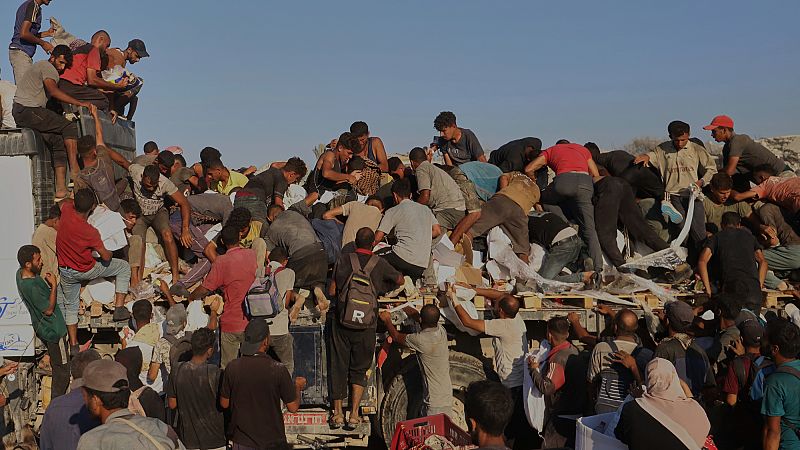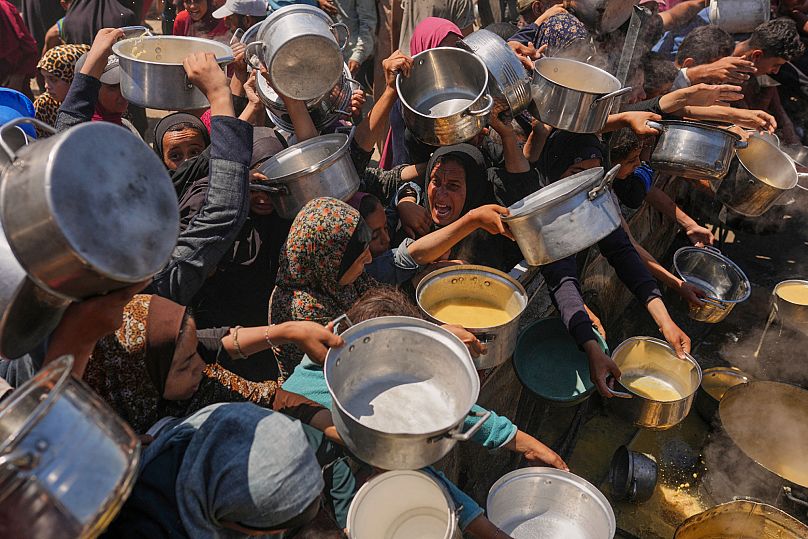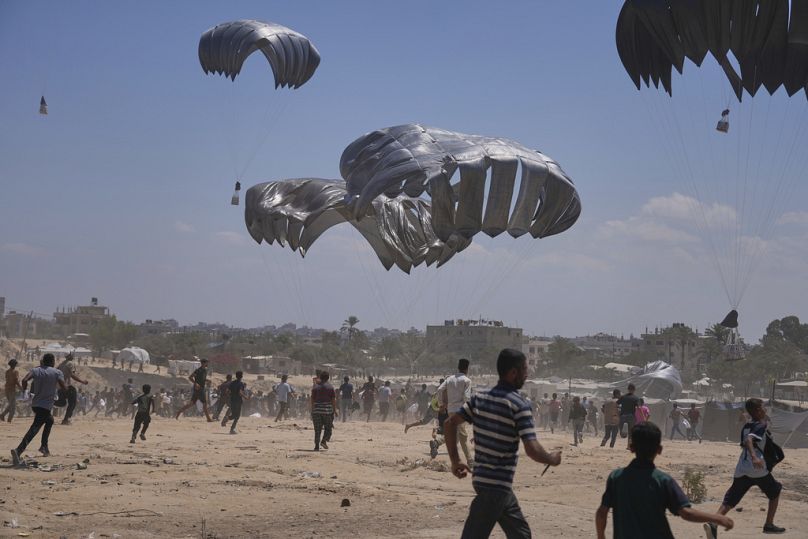Netanyahu to convene security cabinet amid further civilian deaths in Gaza

Israel's Prime Minister Benjamin Netanyahu said Monday that he would convene his security cabinet later this week to discuss how Israel's military would meet its goals in its war against Hamas.
"We must continue to stand together and fight together to achieve the war objectives we have set: the defeat of the enemy, the release of our hostages, and the assurance that Gaza will no longer pose a threat to Israel," he said.
Earlier on Monday, Netanyahu announced he wants to fully occupy the entire Gaza Strip, including launching military operations in areas where remaining hostages held by Hamas are believed to be located.
Netanyahu's statement followed the release of new videos of emanciated hostages held in Gaza, horrifying Israelis and prompting harsh criticism from world leaders.
Netanyahu stated that the videos strengthened his resolve to topple Hamas, appearing to sideline a pursuit of reaching a negotiated agreement. Instead, the Israeli leader signalled an intention to fully occupy the Palestinian enclave.
In a document seen by Euronews in December 2023, the Israeli government imagined a similar plan, one that explicitly excludes the sovereignty of Palestine, or more specifically the Palestinian Authority (PA), or the presence of the United Nations aid agency UNRWA as a source for humanitarian aid.
Netanyahu's push to increase military operations is met by strong opposition within Israel, including from members of his own government, as well as prominent cultural figures.
Ceasefire negotiations between Hamas and Israel have come to a standstill with no major breakthroughs on multiple occasions, with mediators struggling to overcome hurdles from both sides.
Dozens of Palestinians killed seeking aid, health officials say
The footage of the hostages was released as humanitarian organisations and international experts continue to warn of a "worst-case scenario of famine" unfolding in the Strip, where a limited amount of aid has been trickling in for months.
On Monday, dozens of Palestinians were killed seeking aid, health officials said, adding that another five had died of starvation.
Since May, several hundred aid seekers heading towards distribution sites or aid convoys have been killed in incidents involving the Israeli military opening fire near civilians, according to witnesses, health officials, and the United Nations human rights office.
In response to the lack of food and growing famine in Gaza, several countries have resorted to airdropping aid over the Strip.
While many cheered at the sight of the pallets dropping from the air, the UN and aid groups warned that the parachute drops are dangerous for residents and are far less effective than delivery by trucks.
Pallets are often dropped into the Mediterranean Sea, prompting people to run into the water, or in so-called red zones from which the military told residents to evacuate. In one instance, a crate fell onto a tent where displaced people were sheltering.
On Sunday, at least 16 people were killed while waiting for the arrival of UN aid trucks near the Israeli-controlled Zikim Crossing, the main entry point for aid in northern Gaza, health officials said.
Further 10 people were killed waiting for aid trucks in the Morag Corridor, which the Israeli military carved out between the southern cities of Khan Younis and Rafah.
Yemen launches missiles at Israel again
Early on Tuesday, Israel's military announced it intercepted a missile launched from Yemen, local media reported.
Last week, Yemen's Houthis said they would continue to target commercial ships belonging to any company that does business with Israeli ports.
The Iran-backed rebels said countries should pressure Israel to stop its military campaign in Gaza and lift its blockade on the Palestinian territory "if they want to avoid this escalation."
Today



